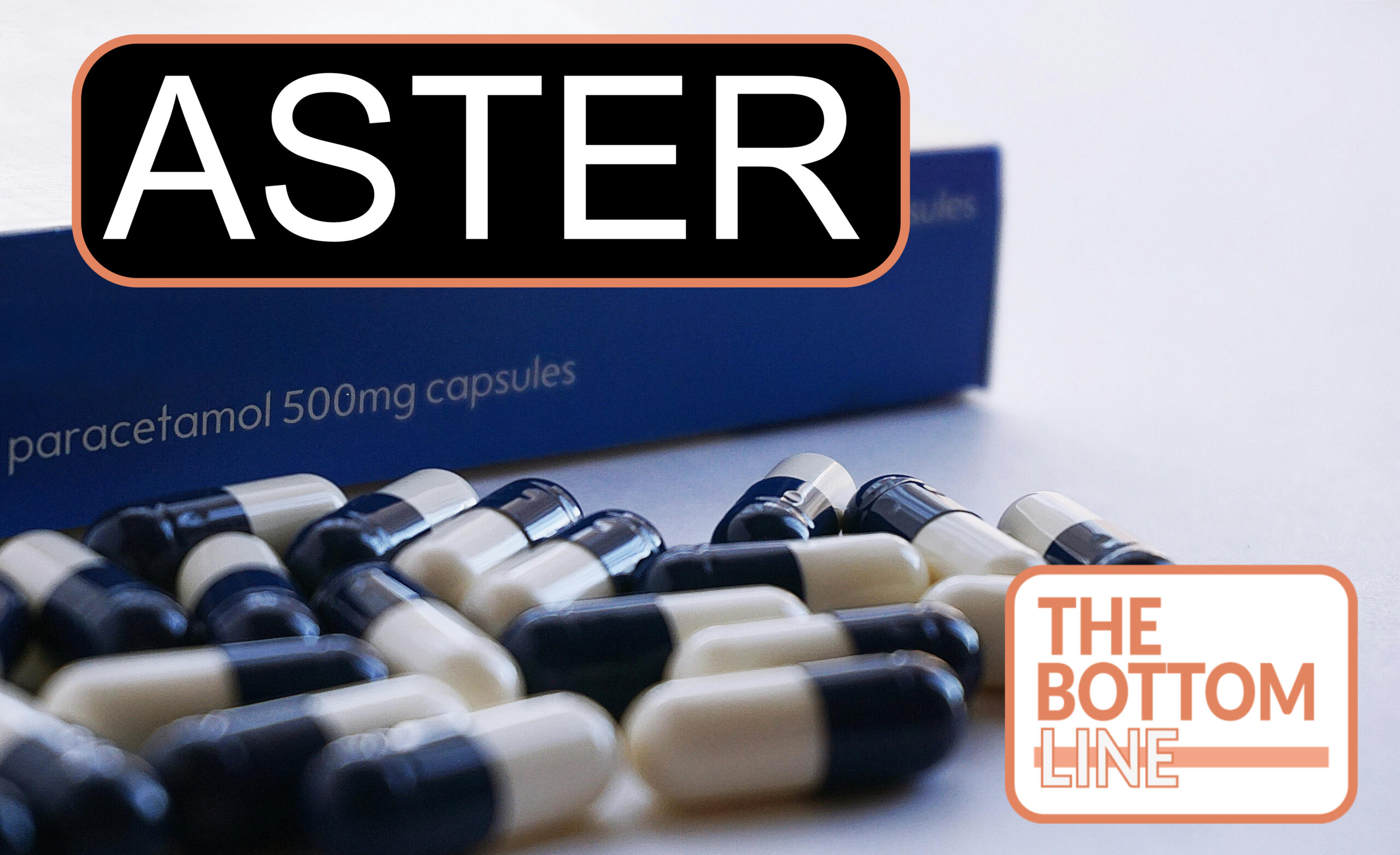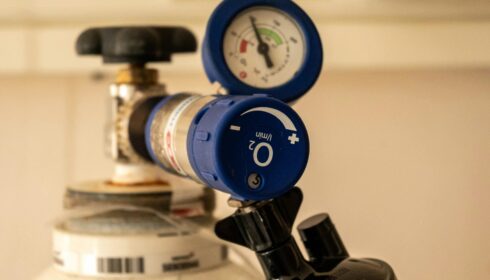ASTER – Acetaminophen in Sepsis

Acetaminophen for Prevention and Treatment of Organ Dysfunction in Critically Ill Patients With Sepsis
Ware. JAMA 2024. doi:10.1001/jama.2024.8772
Clinical Question
- In critically ill adult patients with sepsis does the administration of acetaminophen compared to placebo increase the number of days alive and free of organ support to day 28?
Background
- Acetaminophen is a potent and specific haemoprotein reductant that can block haemoglobin-induced oxidation of lipids and other substrates
- Circulating cell-free haemoglobin (CFH) levels are elevated in the majority of critically ill patients with sepsis
- Observational studied indicate that cell-free hemoglobin levels are independently associated with development of organ dysfunction including ARDS and death
- Previous RCTs have shown conflicting results regarding the effectiveness of acetaminophen in sepsis patients:
- ACROSS trial (2014, n=40) found improvement in plasma biomarkers of lipid peroxidation and kidney function
- HEAT trial (2015, n=700) found no improvement in ICU-free days to day 28
Design
- Phase 2b multi-centre, randomized, double-blind trial
-
- Originally designed as a 3-arm trial (1: 1:1 acetaminophen, vitamin C, placebo); revised to a 2-arm trial (1:1 acetaminophen, placebo) following external trial data regarding Vitamin C
- Intention-to-treat analysis
- Web-based randomization
-
- Pre-specified analysis looking at those with different CFH levels
- Single interim analysis planned to evaluate efficacy and futility
- Sample size calculation: Designed to detect an absolute difference of 2.5 days in the primary outcome with an alpha error of 0.05 and 85% power
- Independent data and safety monitoring board
Setting
- 40 US academic ICUs
- From October 2021 to April 2023
Population
- Inclusion:
- 18 years or older
- Sepsis:
- Known or suspected infection with order written to administer antibiotics) AND
- Organ Dysfunction, defined as either:
- Hypotension: the need for vasopressors after at least 1L IV fluid OR
- Respiratory Failure: mechanical ventilation, NIV, or supplemental oxygen > 6L/min
- Exclusion:
- No consent or inability to obtain consent
- Unable to randomize within 36 hours after presentation to ED or acute care hospital
- Hypersensitivity to acetaminophen
- Liver dysfunction: ALT/AST > 5x upper limit of normal, liver cirrhosis or liver transplant
- Chronic Alcohol use
- Patient, surrogate or physician not committed to full support (except DNR in event of cardiac arrest)
- Long term organ supports: chronic dialysis, home assisted ventilation (except nocturnal NIV for sleep-disordered breathing, home oxygen > 3L/min)
- Not expected to survive 24 hours or estimated life expectancy < 1 month.
- Pregnancy
- Prisoner
- Treating team unwilling to enrol because of intended acetaminophen use
- 4557 patients assessed for eligibility → 1355 met eligibility criteria → 488 patients randomised
- 40 in Vitamin C group later excluded
- Baseline characteristics were non-significant between groups (Acetaminophen vs Placebo):
- Age: 64 years vs 64 years
- Male sex: 50.7% vs 48.2%
- Vasopressors: 76.7% vs 75.5%
- Assisted Ventilation: 43.8% vs 39.3%
- High Flow Oxygen: 14.6% vs 17.8%
- Time from inclusion to randomisation: 9.6h vs 9.7h
- Site of Infection:
-
- Pneumonia: 44.1% vs 43.6%
- UTI: 16.3% vs 23.6%
- intra-abdominal infection: 10.6% vs 8.6%
- Baseline Biochemistry:
- Creatinine: 1.6 mg/dL vs 1.7 mg/dL
- AST: 45.5 U/L vs 40.9 U/L
- Bilirubin: 0.9 mg/dL vs 0.9 mg/dL
- SOFA score (excluding GCS component): 5.5 vs 5.2
- Pre-randomisation acetaminophen: 46.7% vs 41.4%
Intervention
- Acetaminophen
- dose of 1g in 100mL diluent (or 15mg/kg if actual body weight was <50 kg) every 6 hours intravenously for 5 days (20 doses)
Control
- Placebo
- An identical appearing intravenous infusion of 100mL of 5% dextrose in water every 6 hours for 5 days (20 doses)
Management common to both groups
- The study drug was discontinued prior to 120 hours (5 days course), if one of the following occurred:
- Discharge from the study hospital or ICU
- Withdrawal from the study
- Death
- AST and ALT monitoring (Day 0, 2, 3, 4, 5): Discontinuation if ≥ 10 times the upper limit of normal
- ARDS patients: Protocolized low tidal volume ventilation and weaning from mechanical ventilation.
- Fluid management: Appropriate for shock or ARDS patients.
- NSAIDs and COX-2 inhibitors: Discouraged use for fever
- Open-label acetaminophen: Not permitted while receiving the study medication
Outcome
- Primary outcome:
- Days alive and free of any organ support (dialysis, assisted ventilation, and vasopressors) to day 28 – No statistically significant difference:
- 20.2 days (Acetaminophen) vs 19.6 days (Placebo)
- Mean Difference 0.6 (95% CI -1.4 to 2.6), p=0.56
- No difference in any subgroup (sex, race, ethnicity, Covid-19 status, pre-randomisation acetaminophen use, higher baseline CFH)
- Days alive and free of any organ support (dialysis, assisted ventilation, and vasopressors) to day 28 – No statistically significant difference:
- Secondary outcomes:
- No significant difference in:
- 28 day hospital mortality: 16.5% (Acetaminophen) vs 21.6% (Placebo)
- Days free to day 28 from ventilator, vasopressors, renal replacement therapy, ICU or hospital
- 90 day mortality
- MAKE 28
- Change in SOFA score from baseline to day 7
- Significantly less in acetaminophen group
- Development of ARDS within 7 days: 2.2% vs 8.5%
- No significant difference in:
- Adverse events: 36 vs 32
- Safety outcomes (Acetaminophen vs Placebo):
- No significant difference in:
- AST or ALT ≥ 10 times the upper limit
- New liver dysfunction
- Allergic reactions
- Requiring management for hypotension after administration
- No significant difference in:
- Pre-specified analysis
- CFH levels > 10 mg/dL or ≤ 10 mg/dL
- No difference in days free of organ support to day 28, all-cause mortality at day 28, MAKE 28 or adverse events
- CFH levels > 10 mg/dL or ≤ 10 mg/dL
Authors’ Conclusions
- Treatment of critically ill patients with sepsis with either respiratory or circulatory organ dysfunction with acetaminophen was safe but did not significantly improve days alive and free of organ support to day 28
Strengths
- Multi-centre, randomized, double-blind trial
- Intention-to-treat analysis
- Well balanced baseline characteristics
- High adherence
- 226/228 received acetaminophen, with the mean number of missed doses was 1.2
- Low loss-to-follow-up rate:
- 5/228 in acetaminophen and 3/220 in placebo
- Assessed a feasible intervention – acetaminophen is common, cheap and well used medication
Weaknesses
- Vitamin C arm was discontinued leading to 40 patients being excluded
- Secondary outcomes not adjusted for multiplicity
- Whilst high adherence to protocol it was only administered in ICU, therefore patients on average only received 12 doses
- High rates of pre-randomisation acetaminophen use with no data on total amounts used
- Low rates of non-white participants and single country may limit external generalisability
- No difference in subgroup analysis
The Bottom Line
- I will not be advocating for the routine use of acetaminophen in critically ill patients with sepsis, especially when combined with the HEAT trial
- Further work to assess whether acetaminophen may improve 28 days mortality in patients with sepsis and high free-cell haemoglobin could be conducted
External Links
Metadata
Summary author: Kenta Ogawa
Summary date: 13th December 2024
Peer-review editor: George Walker
Picture by: Suzy Hazelwood / Pexels



